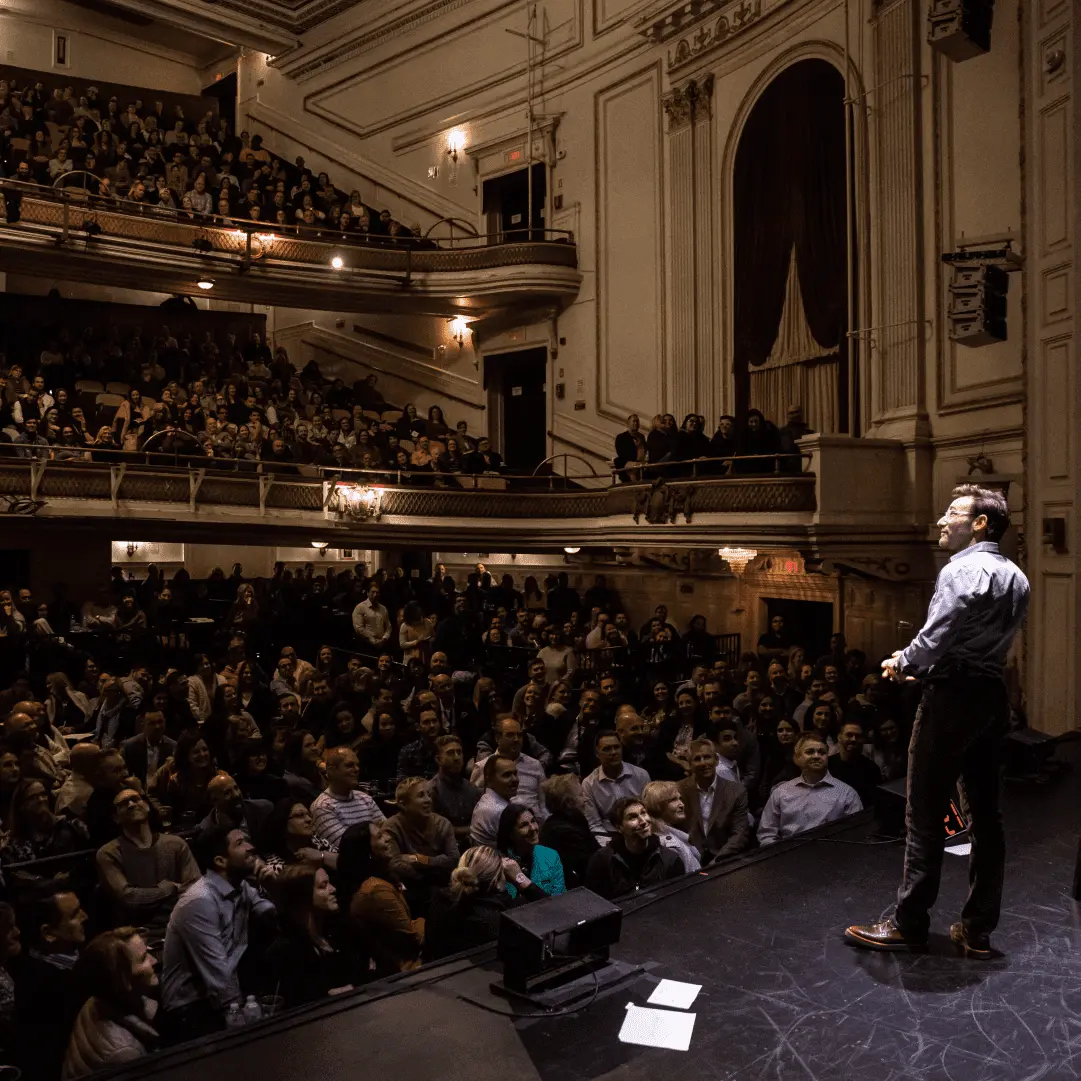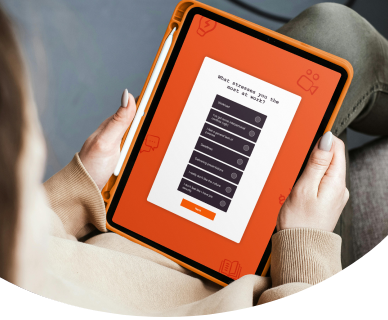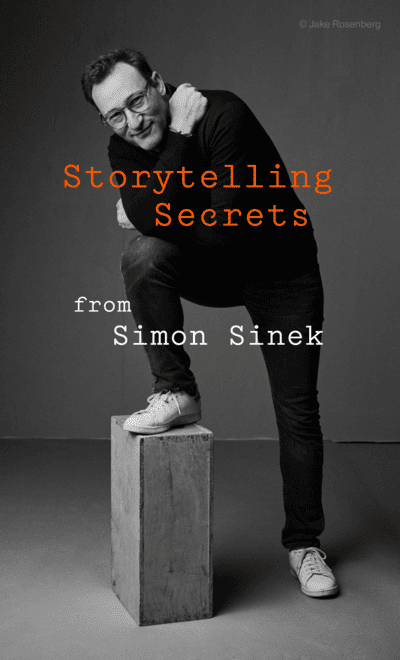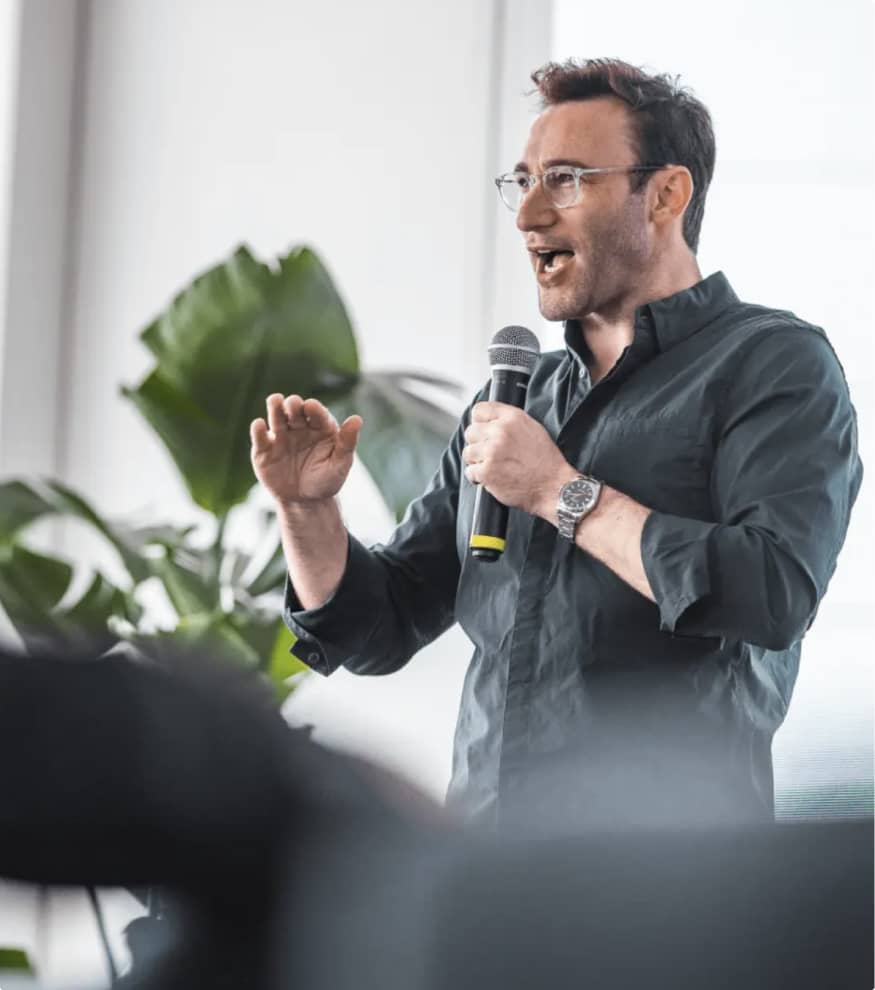Picture yourself at your last presentation. You probably started with some context: “Over the past two years, we’ve been analyzing…” or “I’d like to talk to you today about…” Now imagine instead walking in and saying: “The year is 1963. January. Vietnam.”
Feel the difference?
“Most people start with stuff that doesn’t matter,” says Simon. “They tell you the lesson they want you to learn, then tell you the story as an example. But it works much more effectively when you start with the story itself—when you start with the emotion.”
It turns out, we might be overthinking our openings. Here’s how to grab your audience from the first sentence (and why it’s simpler than you think):
Start Where the Action Is
Remember writing essays in school? We were taught to start with background, context, the “setting up” paragraph. Simon suggests something different: Write that first paragraph—then delete it.
“Just start where the action happens,” he advises. “Don’t worry about the lead-up. Don’t worry about saying ‘I’ve been thinking about this for quite a while now…’ Just begin.”
Trust Your Audience’s Patience
Here’s something reassuring: You don’t need to explain why you’re telling a story right away. “People are patient,” Simon explains. “They’ll listen without knowing why they’re listening—if it’s a well-told story.”
In fact, that curiosity can be powerful. When people think “Where is this going?”—that’s not a bad thing. It means they’re engaged.
Three Ways to Start Strong:
Set the Scene Simply: “The year is 1963…” Sometimes that’s all you need. Let people’s imaginations do the work of filling in the fashions, the environment, the mood.
Jump Into Action: Skip the build-up. Start where something happens. As Simon puts it, “When we start a story where the action happens, I’m saying ‘This story is for you, and I want you to be a part of this with me.'”
Save the Lesson: Here’s the game-changer: Don’t start by telling people what they should learn. Start with the story that makes them want to learn it. “When you’re giving the explanation after,” Simon shares, “you’re not talking at them—you’re bringing them along with you.”
A Simple Test for Your Opening
Next time you’re preparing a presentation, try this: Write your introduction as you normally would. Now look at your second paragraph. Could that be your opening instead?
As Simon puts it: “There’s no right way to start a story—but there are more engaging ways.” The goal isn’t perfection; it’s connection. Start where it gets interesting, and trust that your audience will come along for the ride.
Let’s See This in Action
Here’s how a lot of people might start a presentation about a new team collaboration tool:
“Good morning everyone. Today I’d like to talk to you about improving our team’s efficiency. Over the past six months, we’ve been analyzing our workflow patterns and researching various solutions. Our studies show that teams spend approximately 23% of their time searching for information across multiple platforms, and…”
Cue the audience checking their phones.
Now, here’s how you could start the same presentation:
“Last Wednesday at 3am, Sarah from Marketing was in tears. The biggest campaign of her career was launching in six hours, and she couldn’t find the updated brand guidelines anywhere. Not in Slack. Not in Drive. Not in any of the 47 email threads she’d searched.
“Finally, she found them—buried in an email from last June, hidden in a folder called ‘Misc 2023.’ She’d been looking for three hours. The campaign was due at 9am. Later, she discovered three team members had the file all along, each working from different versions.
“Sarah’s story isn’t unique—it happened again yesterday to the sales team during their biggest pitch of the quarter, and it’ll happen tomorrow to someone else on your team unless we do something about it. Let me show you what that something could look like.”
Feel the difference? The second version:
- Raises emotional stakes (tears, biggest campaign)
- Adds specific details (47 email threads, biggest pitch of the quarter)
- Creates more urgency (six hours, biggest campaign)
- Makes the problem more personal (someone else on your team)
- Maintains credibility (doesn’t go over-the-top)
- Sets up solution more compellingly
The data, research, and context can come later. First, give your audience a reason to care.
Because in the end, a great opening isn’t about being perfect—it’s about making people look up from their phones and think, “Wait, this matters to me.”
Ready to tell better stories? Dive into “Storytelling Secrets from Simon”—out now in The Optimism Library.

